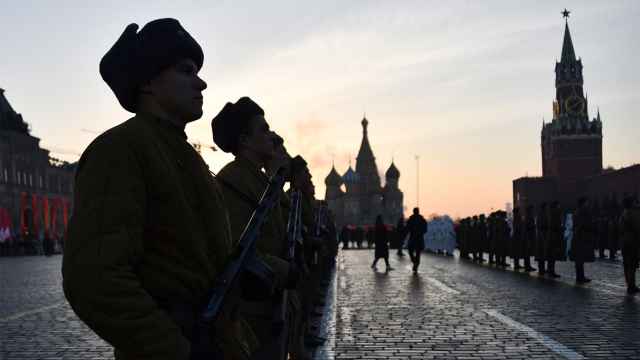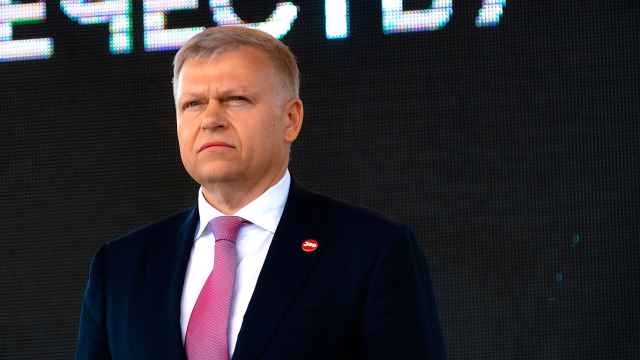Chastened by the Kremlin and the international community after the death of lawyer Sergei Magnitsky, the Justice Ministry has ordered prison doctors to check the health of prisoners being punished with solitary confinement.
The decree outlines the procedures for the medical check, which is already required under the law. Human rights activists warned that little would change in prisons as a result, saying prison doctors are dependent on prison wardens, who, in turn, are biased in their treatment of prisoners.
The issue of medical checks came into the spotlight after Magnitsky, a lawyer for Hermitage Capital, died in 2009 and businesswoman Vera Trifonova died in 2010. Both had pre-existing health problems that supporters said went untreated. A Kremlin-ordered independent investigation into Magnitsky's death also found that the sickly lawyer had been severely beaten by prison guards shortly before his death.
On President Dmitry Medvedev's orders, the government in January compiled a list of diseases that qualify a suspect to be placed in a prison hospital rather than a cell. The diseases include severe cases of diabetes, tuberculosis, cancer, HIV and heart disease.
The January list is similar to a 2004 government list of diseases that prohibit prison officials from placing a prisoner in solitary confinement.
The Justice Ministry decree, published by the government's Rossiiskaya Gazeta on Wednesday, says a doctor must examine a prisoner after the prison warden orders him placed in solitary confinement. After the examination, the final decision rests on the prison warden.
The doctor is obliged to examine the prisoner in a professionally equipped room, study records of his medical history, and listen to any complaints.
The doctor will then write down all the information in the prisoner's medical records and sign a document supporting or rejecting the solitary confinement order.
A spokeswoman for the Justice Ministry said she was unable to read the inquiry submitted by e-mail Wednesday because "the letters were too small" and that the ministry was unable to answer in one day anyway.
In the late afternoon, a ministry spokesman asked that the inquiry be submitted by fax. The fax went unanswered.
Nadezhda Radnayeva, an activist with a rights group called In Defense of the Prisoners' Rights, said the medical examination should be held after the prisoner commits the purported violation but before the warden orders solitary confinement. The reason, she said, is because the violation — like failing to show up for work or morning exercises or failing to do the exercises or work properly — might be connected to a health problem.
Furthermore, she said, it makes no sense to order a medical check after the warden orders solitary confinement because doctors will "never cancel the order of their boss."
Valery Borshchyov, a veteran trial lawyer who headed the investigation into Magnitsky's death for the Kremlin's human rights council, said prison health care should be entrusted to the Health and Social Development Ministry instead of the Federal Prison Service to allow prison doctors to make independent decisions.
But the Health and Social Development Ministry has repeatedly rejected proposals to take up prison health care, apparently because "they don't need the extra headache," Borshchyov said.
Meanwhile, Magnitsky's mother appealed in court late last month against the reopening of a criminal case against her son on charges of tax evasion in July, Hermitage Capital said in an e-mailed statement Wednesday.
No one has been arrested over Magnitsky's death, although the U.S. State Department has blacklisted unidentified Russian officials linked to his arrest.
Russia's prison system is notorious for harsh detention conditions and abysmal health care. The Prosecutor General's Office said in February that 4,423 people died in custody in 2010, a 9 percent year-on-year increase.
More than 90 percent of prisoners have chronic diseases, including 410,000 with HIV, tuberculosis and other life-threatening diseases.
About 260,000 prisoners are placed in disciplinary cells every year, the Justice Ministry said in February.
About 820,000 prisoners are housed in Russian prisons, according to Federal Prison Service figures for 2009, the latest year for which data has been compiled. Of those, more than 346,000 are repeat offenders and more than 105,000 are serving terms upward of 10 years.





